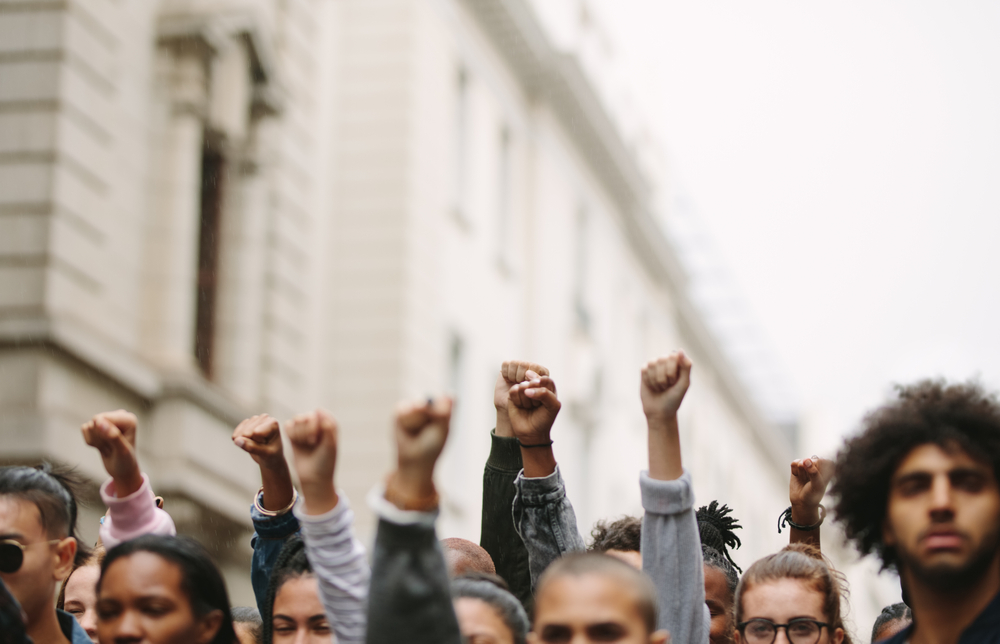Their everyday protests.
By Amornrat Sidhu
Everybody has a cause they are passionate about. In a world where we might not join mass protests or quit our job to hug trees, what are the little actions we take in our everyday life that are for a cause we believe in? There is much more emphasis now on the power of small acts, the power of individual change and the power of the people. What is a cause you believe in? How do you protest? Thai-Indian community members chime in on this relevant question amidst the controversies that plague our world.
REDUCING MY CARBON FOOTPRINT
Thida Sachathep, 30
Senior Lecturer and Researcher
Creating positive change in the world does not always require grand gestures or lifestyle overhauls. The cumulative impact of small, consistent actions can collectively make a significant difference. In saying that, I believe the concept of protesting should not be limited to traditional forms that society often associates with activism.
In my everyday life in Sydney, Australia, I focus on making conscious choices that contribute to the causes I believe in, such as reducing my carbon footprint. (A/N: Our carbon footprint is the amount of methane, carbon dioxide, nitrous oxide and water vapour we produce through our activities, purchases and possessions. These gases, in combination and alone, are responsible for the ‘greenhouse effect’ responsible for global warming.)
I opt for sustainable transportation like the tram and use it for most of my transport to and from work. We rarely use the car during the week, but sometimes this is unavoidable due to weather, errands we need to run or unreliable public transportation. In saying that, I make a conscious choice to pick public transportation over using my own vehicle when I can. Additionally, I prefer to use reusable items instead of disposable ones, like taking my long black coffee from home rather than buying a cardboard cup from a cafe. Lastly, we don’t use paper bags, and plastic bags are a big “no no.” When my husband and I go grocery shopping or even for just a walk, we will usually take our own canvas/cloth bags. We never know when we will buy something, so we have about ten of those bags lying in the trunk of our car, too.
While I might not be on the front lines of a protest, I believe that my everyday decisions contribute to a more significant movement towards a more sustainable, just and compassionate world for generations to come.
WHY I CHOSE TO STOP PURCHASING STARBUCKS PRODUCTS
Anonymous, 25
Business Owner
In a world where every purchase carries a hidden impact, the decision to boycott certain products becomes an ethical statement, a personal stand against injustice. For me, that choice led me to forego the familiar comforts of Starbucks in an effort to distance myself from the ongoing crisis in Gaza.
The Israeli-Palestinian conflict has long been a source of tension and suffering, and the international community plays a crucial role in influencing change. Starbucks, as a global corporate entity, has faced criticism for their business ties that some argue indirectly support activities contributing to the conflict. For example, Starbucks has built stores in illegal Israeli settlements in the West Bank, which are a violation of international law. Starbucks has also been accused of providing financial support to the Israeli military, which has been responsible for numerous atrocities against the Palestinian people. By abstaining from patronising these companies, we can demonstrate solidarity with those affected by the ongoing strife in Gaza.
I am boycotting Starbucks because I believe that it is important to stand up against human rights abuses and hold companies accountable for their actions. I encourage others to join me in boycotting Starbucks until the company changes its policies and respects the rights of the Palestinian people. This boycott serves as a peaceful means for us to express our stance against actions that might inadvertently contribute to the perpetuation of violence and human rights violations in Palestine.
This boycott serves as a reminder that our daily routines, even as seemingly inconsequential as sipping a cup of coffee, can carry profound consequences, and we, as consumers, have the power to influence change through the choices we make.
A LITTLE BIT OF EVERYTHING
Natasha Sethi, 24
Journalist
Educating people. Making lifestyle changes. Speaking up for a cause. Writing for a cause. Attending protests. Attending demonstrations – these are some of the ways I incorporate protesting into my everyday life.
I’m a vegetarian because I don’t endorse the killing of animals to satisfy my cravings; my diet is a form of protest. I’m a journalist because I want to be a voice for the unheard; my career path is a form of protest. I opt for locally-produced products to be more environmentally sustainable; my purchasing patterns are a form of protest.
Change begins on an individual level, so if we all just do our bit by protesting however we can whenever we can, we’re making more of a difference than we may realise. From personal choices to professional pursuits, I try to protest however I can, but there’s a lot more that I can and aim to do.
Other Everyday ‘Protests’ from People Within the Thai-Desi Community
- Not buying from companies such as SHEIN, since accusations and revelations were revealed of unfair and inhumane work conditions for employees
- Making a conscious choice to buy material and stitch outfits to introduce a more mindful and meaningful wardrobe rather than enable ‘fast fashion’
- Switching on the A/C only at night when it is time for bed, no matter how hot or stuffy it gets
- Rarely posting personal events or thoughts, but using Instagram as a platform to highlight the genocide in Palestine and other current world issues









